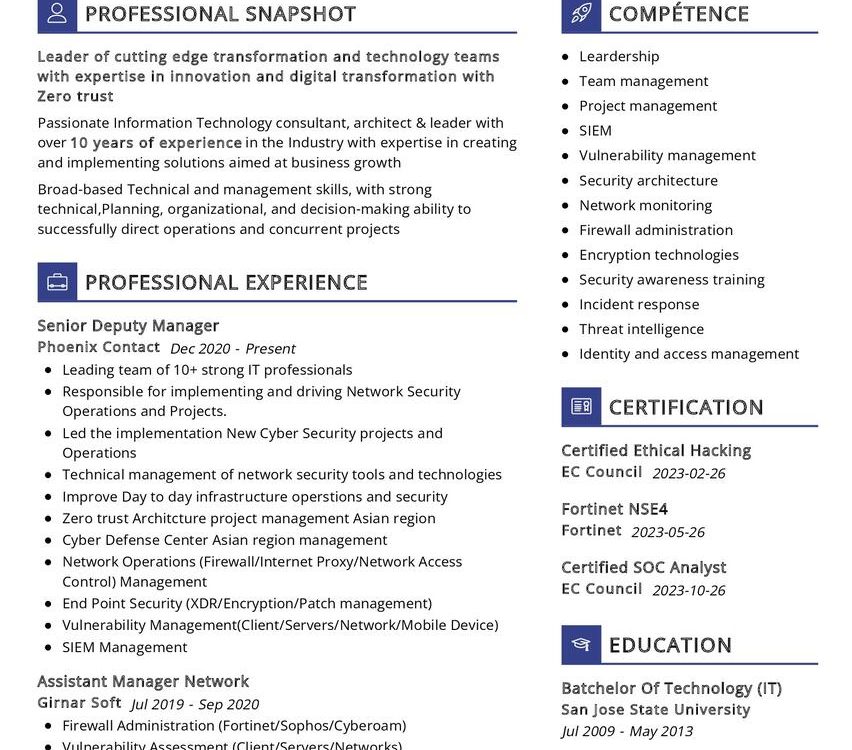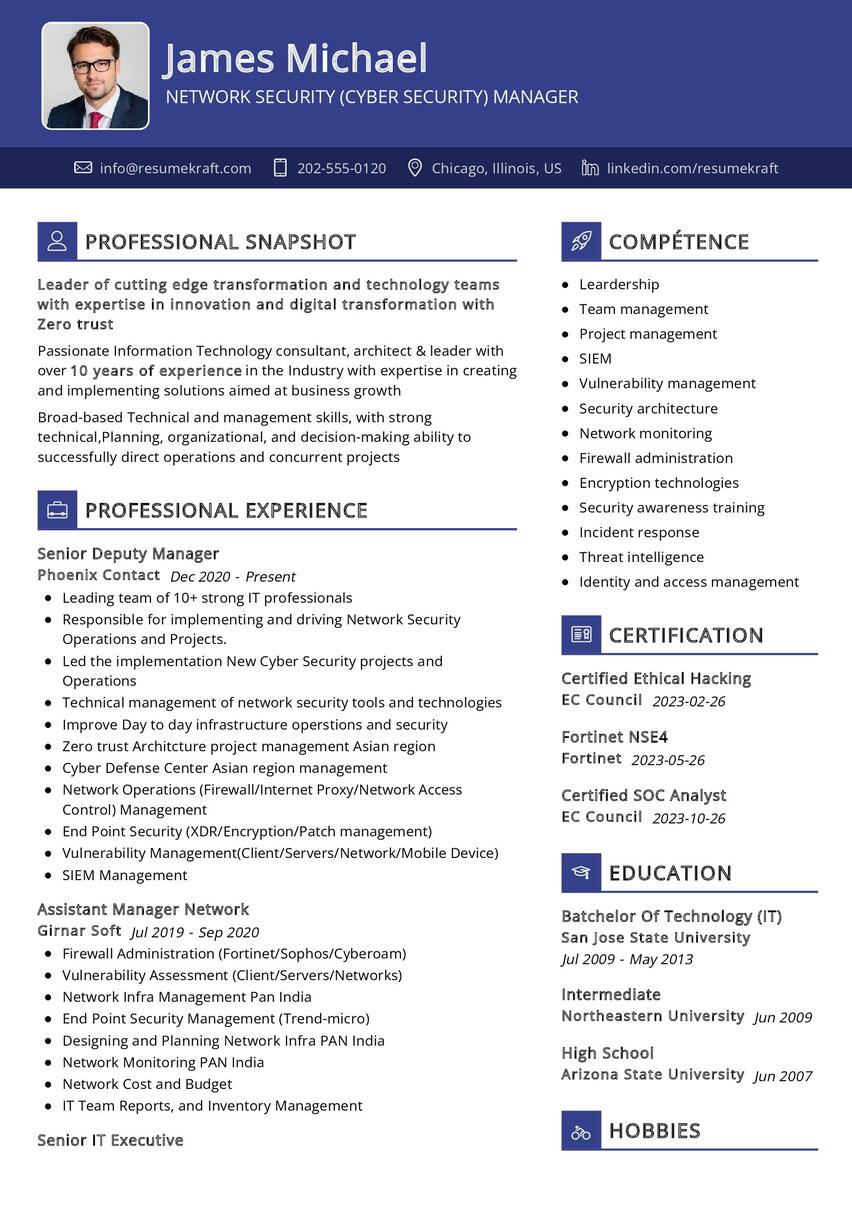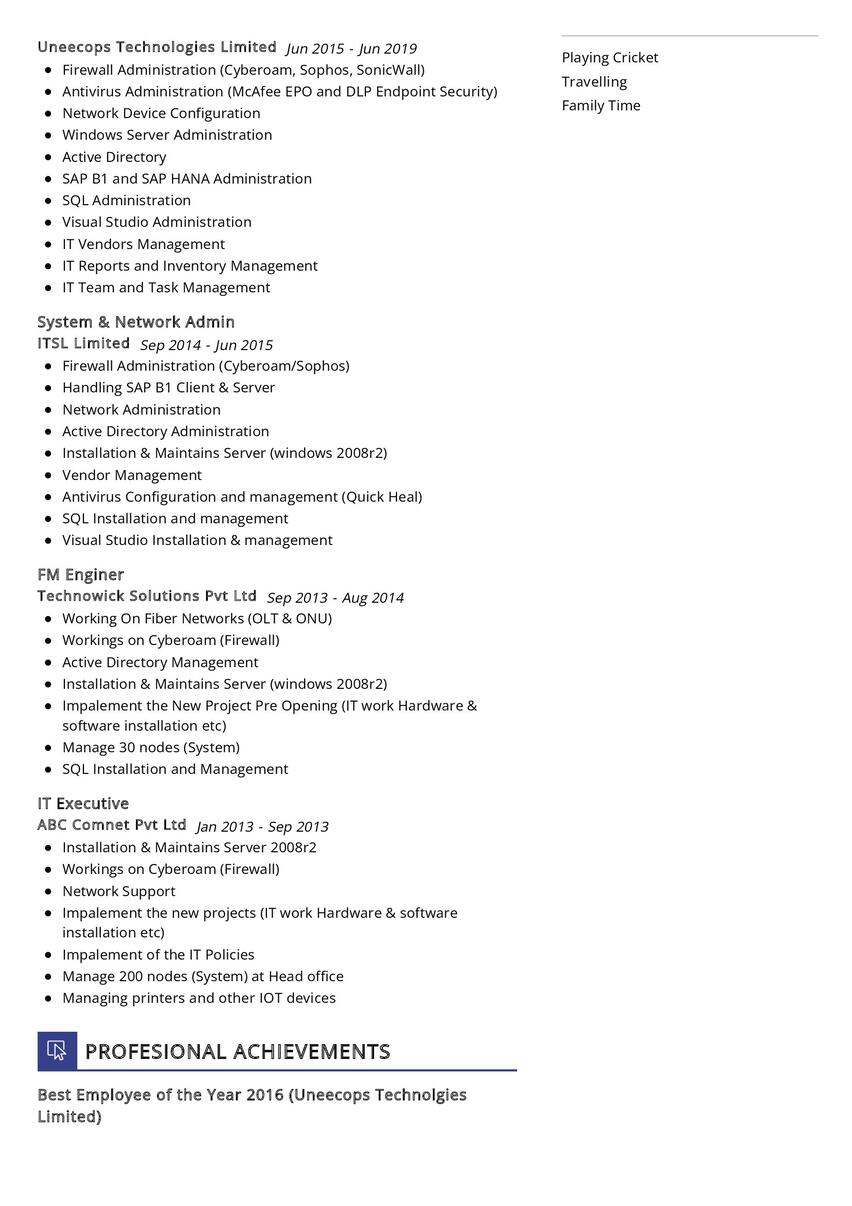Understanding the Role of a Network Security Manager
In an era dominated by digital interactions, the position of a Network Security Manager plays a critical role in safeguarding an organization’s sensitive information and ensuring the integrity of its digital infrastructure. This article delves into the multifaceted responsibilities of a Network Security Manager, exploring the skills, qualifications, and experiences necessary to excel in this pivotal role.
Key Responsibilities of a Network Security Manager
A Network Security Manager shoulders the responsibility of protecting an organization’s computer systems and networks from cyber threats. This involves a combination of strategic planning, hands-on technical expertise, and effective team leadership. Let’s break down the core responsibilities that define this role:
- Designing and Implementing Security Measures: Network Security Managers are tasked with developing and implementing security protocols to safeguard the organization’s digital assets. This includes firewalls, encryption, and intrusion detection systems.
- Monitoring Network Activity: Constant vigilance is crucial in the world of cybersecurity. Network Security Managers monitor network activity to identify and respond to any suspicious behavior or security breaches promptly.
- Leading Incident Response: In the event of a security incident, Network Security Managers take the lead in responding swiftly and effectively. This involves coordinating with internal teams and possibly external authorities to mitigate the impact.
- Conducting Security Audits: Regular audits are essential to identify vulnerabilities and ensure compliance with industry standards. Network Security Managers oversee these audits, implementing necessary changes to enhance security measures.
- Training and Educating Staff: Human error is a common factor in cybersecurity incidents. Network Security Managers conduct training sessions to educate staff on best practices, security policies, and the latest threats.
- Staying Informed: The cybersecurity landscape is ever-evolving. Network Security Managers stay abreast of the latest trends and emerging threats, adapting strategies to proactively protect the organization.
Job Requirements for Aspiring Network Security Managers
To step into the role of a Network Security Manager, individuals need to meet specific educational and experiential requirements. Here’s a comprehensive list of prerequisites for aspiring candidates:
- A Bachelor’s or Master’s degree in Cybersecurity, Information Technology, or a related field.
- Demonstrated experience in network security roles, showcasing a progression of responsibilities and achievements.
- Certifications such as Certified Information Systems Security Professional (CISSP) or Certified Ethical Hacker (CEH) are highly advantageous.
- Proficiency in security technologies, including firewalls, antivirus programs, and intrusion detection systems.
- Strong analytical and problem-solving skills to assess and respond to security incidents effectively.
- Excellent communication skills to convey complex security concepts to non-technical stakeholders.
- Leadership abilities honed through experiences and possibly through courses and certifications.
Attaining additional certifications, such as Certified Information Security Manager (CISM) or Offensive Security Certified Professional (OSCP), can further enhance a candidate’s profile.
Crafting an Effective Network Security Manager CV
Your CV is the gateway to securing a Network Security Manager role. To create a compelling document, consider the following tips:
- Emphasize Leadership Experience: Highlight instances where you’ve led security teams to success, showcasing your ability to guide and inspire.
- Detail Security Initiatives: Describe specific security projects you’ve spearheaded, emphasizing the positive impact on the organization’s security posture.
- Quantify Achievements: Use metrics to quantify your successes, providing a tangible demonstration of your contributions to previous roles.
- List Relevant Certifications: Include all relevant certifications to showcase your commitment to continuous learning and expertise in the field.
- Customize for the Role: Tailor your CV for each application, aligning your skills and experiences with the specific requirements of the Network Security Manager position.
Your CV is not just a document; it’s a narrative of your expertise, achievements, and potential as a Network Security Manager.
Network Security Manager CV Summary Examples
Your CV summary is the first impression you make on potential employers. Craft a powerful summary that encapsulates your experience and value:
- “Results-driven Network Security Manager with over a decade of experience, adept at designing and implementing robust cybersecurity measures. Proven track record in leading incident response and enhancing organizational security posture.”
- “Experienced Cybersecurity Professional specializing in network security, recognized for developing and executing comprehensive security strategies. Adept at training teams and staying ahead of emerging threats.”
- “Certified Network Security Manager with a passion for creating and maintaining secure digital environments. Proven ability to lead security audits and implement effective security measures.”
Each summary is a snapshot of your career, showcasing your skills and value as a Network Security Manager.
Building a Detailed Experience Section for Your Network Security Manager CV
The experience section is the heart of your CV, providing a detailed account of your career journey. Use it to narrate your story, emphasizing key experiences and achievements:
- “Led a team of cybersecurity experts in a dynamic IT environment, achieving a 30% reduction in security incidents over two years.”
- “Implemented advanced threat detection systems, resulting in a 25% improvement in the organization’s ability to identify and respond to cyber threats.”
- “Conducted regular security training sessions, reducing instances of human error leading to security breaches by 15%.”
Each experience is a chapter in your career narrative, illustrating your impact and growth in the field of network security.
Education Section for Your Network Security Manager CV
Your educational background is a crucial aspect of your CV, showcasing your foundation in cybersecurity. List your educational milestones in a clear and concise manner:
- Master of Science in Cybersecurity, XYZ University, a journey of in-depth learning and specialization, 2015.
- Bachelor of Science in Information Technology, ABC University, the foundation of your IT career, 2010.
- Certified Information Systems Security Professional (CISSP), a testament to your expertise in cybersecurity, 2017.
Each educational qualification is a stepping stone, contributing to your expertise as a Network Security Manager.
Essential Skills for a Network Security Manager CV
Your skill set is a valuable asset, demonstrating your abilities as a Network Security Manager. Here are the essential skills to include in your CV:
Soft Skills:
- Leadership and team management, guiding your team to success.
- Clear and effective communication, conveying complex security concepts to diverse stakeholders.
- Problem-solving abilities, finding effective solutions in high-pressure situations.
- Attention to detail, ensuring comprehensive security measures are in place.
- Adaptability and resilience, responding effectively to evolving cybersecurity threats.
Hard Skills:
- Advanced knowledge of firewalls, antivirus programs, and intrusion detection systems.
- Experience with security information and event management (SIEM) tools.
- Familiarity with ethical hacking techniques to identify and address vulnerabilities.
- Understanding of regulatory frameworks and compliance standards in cybersecurity.
- Project management skills for coordinating security initiatives effectively.
Each skill is a tool in your arsenal, contributing to your effectiveness as a Network Security Manager.
Common Mistakes to Avoid When Writing a Network Security Manager CV
Steer clear of common pitfalls that can hinder your chances of securing a Network Security Manager role. Avoid the following mistakes in your CV:
- Using generic language, tailor your CV for each application to highlight your unique fit for the role.
- Focusing solely on job duties, go beyond and showcase your achievements and impact in each role.
- Underestimating the importance of a cover letter, use it as an opportunity to provide additional insights into your candidacy.
- Overloading your CV with technical jargon, ensure it remains accessible to non-technical readers.
- Neglecting proofreading, a polished CV enhances your professional image.
Avoiding these mistakes will help you create a CV that is both authentic and compelling.
Key Takeaways for Your Network Security Manager CV
As you craft your Network Security Manager CV, keep these key points in mind to create a document that stands out:
- Highlight your leadership experience, showcasing your ability to guide teams to success.
- Emphasize your technical proficiency, showcasing expertise in cybersecurity tools and techniques.
- Detail the strategic initiatives you’ve led, demonstrating your visionary approach to cybersecurity.
- Include a section on continuous learning, showcasing relevant certifications and courses.
Finally, feel free to utilize resources like AI CV Builder, CV Design, CV Samples, CV Examples, CV Skills, CV Help, CV Synonyms, and Job Responsibilities to create a standout application and prepare for the Network Security Manager job interview.
Armed with these insights and tips, you are now ready to craft a CV that is a true reflection of your journey, your skills, and your aspirations. Remember, your CV is not just a document; it is a canvas where you paint your career story, a story of growth, learning, and leadership. Best of luck!



